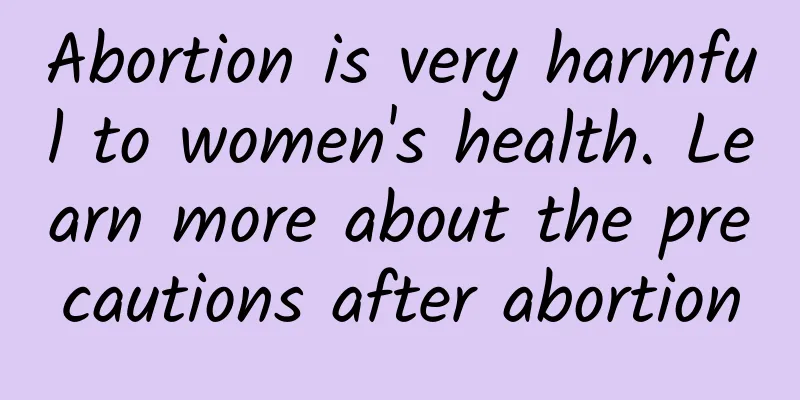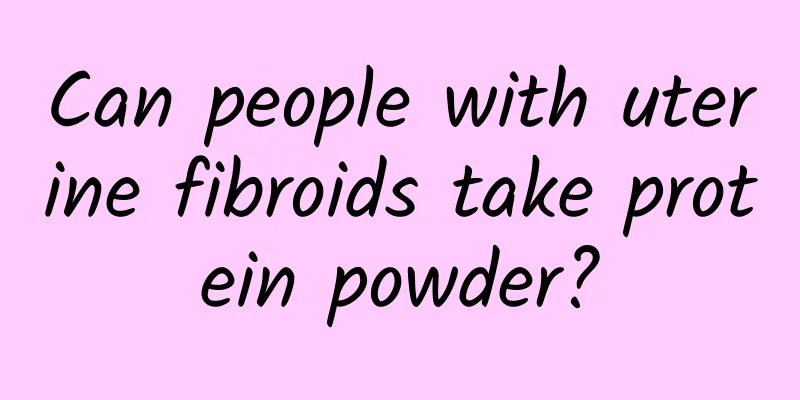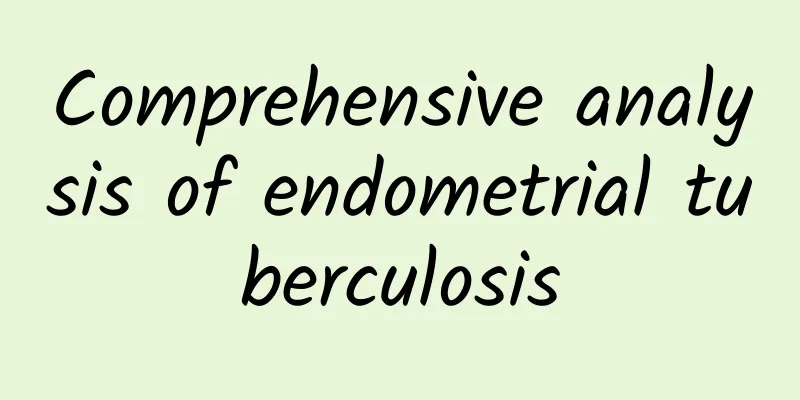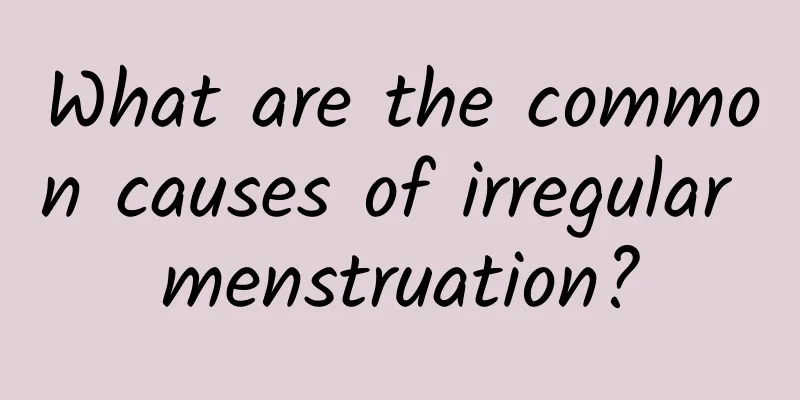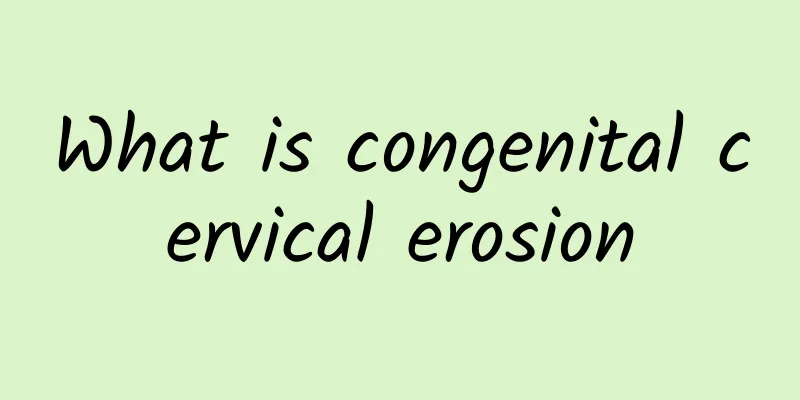What should I pay attention to after radiotherapy for uterine fibroids? What are the reactions after radiotherapy for uterine fibroids?
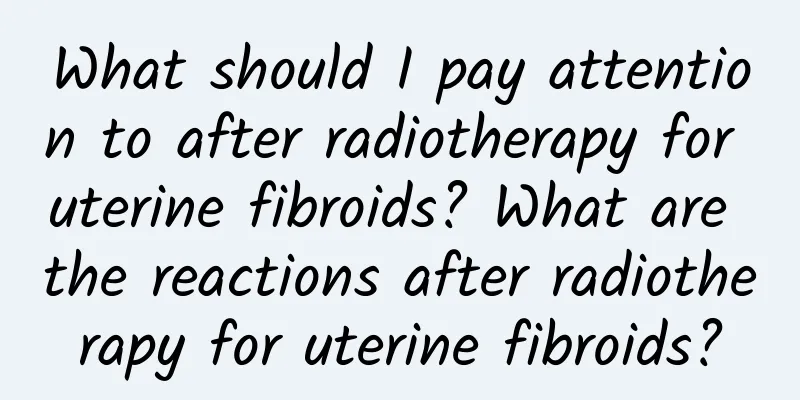
|
What should I pay attention to after radiotherapy for uterine fibroids? What are the reactions after radiotherapy for uterine fibroids? Uterine fibroids are one of the most common benign tumors in the female reproductive system. Radiotherapy is considered an effective treatment for some patients with larger uterine fibroids. However, after receiving radiotherapy for uterine fibroids, patients need to pay special attention to some matters to ensure recovery and reduce potential adverse reactions. This article will discuss several key points that should be paid attention to after radiotherapy for uterine fibroids and list some possible reactions. 1. Postoperative rehabilitation care: After radiotherapy, patients need to pay special attention to rest and physical rehabilitation. Vigorous exercise and physical collisions should be avoided to avoid aggravating the already damaged tissue. Maintaining a happy spirit and a good emotional state is also very important for recovery. Patients can relax by reading, listening to music, or participating in group activities of interest. 2. Diet conditioning and nutritional supplements: Radiotherapy may have a certain impact on the patient's digestive system, so special attention should be paid to diet. Patients should avoid spicy and greasy foods, eat more light and easily digestible foods, and pay attention to a balanced diet. In addition, appropriate supplementation of protein and vitamins can also help speed up physical recovery. 3. Drug treatment and follow-up: After radiotherapy, some discomfort symptoms may occur, such as pain, nausea and vomiting. Patients should communicate with their doctors in a timely manner and take medication according to the doctor's instructions. In addition, regular review and follow-up are also essential. The doctor will make further diagnosis and treatment based on the patient's specific situation. 4. Psychological counseling and support: The radiotherapy process may be a double test for patients, both psychologically and physically. Therefore, psychological counseling and support are also essential. Patients should communicate with their family, friends or professional psychological counselors to share their feelings and confusion. In addition, participating in relevant support groups is also possible. After radiotherapy for uterine fibroids, patients need to pay attention to rehabilitation care, diet conditioning and nutritional supplements, drug treatment and follow-up, as well as psychological counseling and support. These are important steps to ensure patient recovery and reduce adverse reactions. At the same time, we should be aware that each patient's situation is different. Therefore, during the post-radiotherapy care process, patients need to cooperate closely with doctors and carry out personalized rehabilitation care according to their actual situation. In order to better cope with the challenges brought by radiotherapy for uterine fibroids, we should strengthen our understanding of uterine fibroids and actively participate in relevant rehabilitation consultation and support. Only in this way can we help each patient walk more steadily on the road to recovery and recover more quickly. |
Recommend
Specific description of the symptoms of cervical erosion
The symptoms of cervical erosion have a lot of im...
Secondary dysmenorrhea is caused by many factors.
Secondary dysmenorrhea is caused by many factors,...
Pay off your obesity debt quickly after the New Year! Doctor: Master two principles to lose weight healthily
The Lunar New Year holiday has been over for a wh...
What should women do if they have cervical erosion? Common knowledge on how to prevent cervical erosion in women
Cervical erosion is a common gynecological diseas...
Is it normal to have bleeding on the second day after taking mifepristone tablets? What should I do if I have bleeding on the second day?
Although most people will experience vaginal blee...
What is the main cause of pelvic inflammatory disease?
I believe that many women are aware of the high i...
What are the diagnostic methods for pelvic peritonitis?
Pelvic peritonitis refers to inflammation of the ...
How to prevent bleeding after abortion?
Preventing bleeding after abortion: 1. Strictly a...
Drugs are commonly used in the treatment of postpartum cervical erosion
After giving birth, I am very concerned about the...
Routine diagnostic sequence for hyperprolactinemia
The following are some of the diagnoses that shou...
Timely detection of symptoms of cervical erosion can help patients
Nowadays, more and more people are suffering from...
Causes of endometrial tuberculosis
Sometimes in life, when we suffer from a special ...
5 major symptoms of autumn dryness, itchy skin, constipation, and colds... Glutinous rice lotus root, steamed pear, eat "steamed" to be healthy!
It's the beginning of autumn, the harbinger o...
What are the symptoms of uterine fibroids and how to treat them?
The uterus is the source of menstruation and the ...
Causes of pelvic endometriosis
Pelvic endometriosis is a disease that many women...
